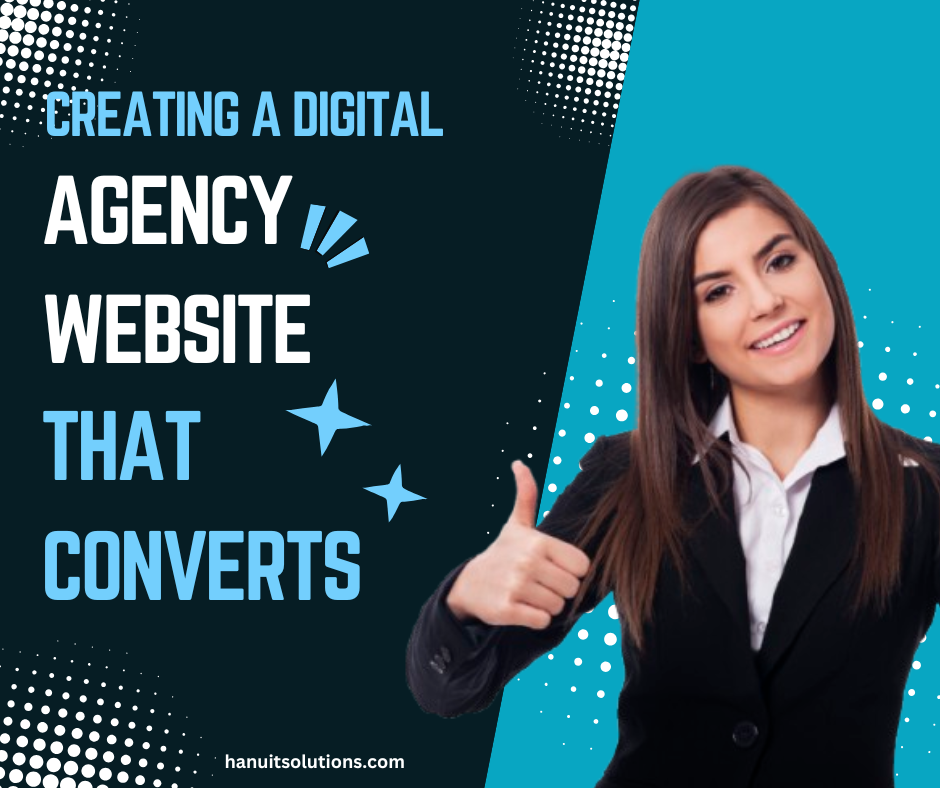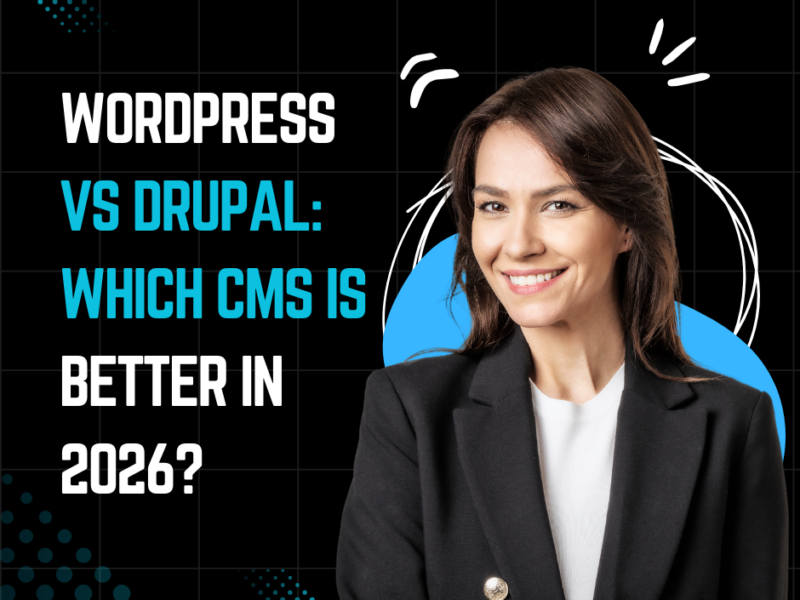Creating a Digital Agency Website That Converts
In today’s competitive market, having a strong online presence is crucial for any digital agency. A digital agency website is more than just a digital storefront; it’s a powerful tool designed to showcase your services, build credibility, and ultimately convert visitors into clients. But what makes a digital agency website truly effective in driving conversions? This article explores essential elements, design principles, and strategies that will help you create a digital agency website that converts potential clients into long-term partners.
1. Understand Your Target Audience
Before diving into the design and development process, it’s crucial to understand who your target audience is. A successful digital agency website should address the needs and pain points of its visitors. Are you catering to small businesses, startups, or large enterprises? Each of these segments has different needs and expectations when visiting your website.
To create a website that converts, you need to:
- Conduct market research to understand the demographics and preferences of your target clients.
- Create buyer personas that represent your ideal customers.
- Tailor your content and messaging to address their specific pain points and goals.
By understanding your audience, you can craft a digital agency website that resonates with visitors and guides them through a seamless user journey.
2. Focus on User Experience (UX) Design
User experience is one of the most critical factors influencing the performance of a digital agency website. A poorly designed website with confusing navigation, slow load times, and unappealing visuals can deter potential clients. To improve UX and boost conversions:
1. Simplify navigation: Ensure that your website is easy to navigate with a clear menu structure. Avoid overcrowding your navigation bar with too many options.
2. Optimize load speed: A fast-loading website is essential for user retention. Tools like Google PageSpeed Insights can help you identify and fix speed issues.
3. Use responsive design: Your website should be mobile-friendly and look great on all devices. With increasing mobile usage, a responsive design is non-negotiable.
4. Incorporate clear calls-to-action (CTAs): Guide visitors towards taking action with well-placed CTAs. Whether it’s “Get a Free Quote,” “Contact Us,” or “Download Our Case Study,” your CTAs should be compelling and direct.
3. Highlight Your Unique Selling Proposition (USP)
Your digital agency website must communicate what sets your agency apart from the competition. This is where your Unique Selling Proposition (USP) comes in. Your USP should be prominently displayed on your homepage, and it should be clear, concise, and compelling.
Consider the following tips:
1. Feature your core services: Highlight your primary offerings such as SEO, social media management, web design, or content marketing.
2. Showcase client success stories: Testimonials and case studies build trust and credibility. They demonstrate your expertise and the results you’ve achieved for other clients.
3. Display industry awards and recognitions: If your agency has won any awards or received certifications, showcase them on your website to enhance credibility.
4. Create High-Quality, Engaging Content
Content is king when it comes to digital marketing. A successful digital agency website needs to provide valuable information that addresses the needs of potential clients. This not only helps with SEO but also positions your agency as an authority in the industry. Consider incorporating the following types of content:
1. Blog posts: Regularly publishing blog posts on relevant industry topics can help drive organic traffic to your site. Optimize your blog content with relevant keywords such as “digital agency services,” “SEO tips,” or “social media strategies.”
2. Case studies: Share detailed case studies of past projects to showcase your expertise and the results you’ve delivered for clients. This can be a powerful tool in converting leads who want to see evidence of your capabilities.
3. Video content: Videos are an engaging way to convey your message. You can create explainer videos about your services, client testimonials, or even behind-the-scenes looks at your agency.
Also read: Why WordPress Design Services Are a Great Choice for Small Businesses
5. Leverage SEO Best Practices
Search engine optimization (SEO) is a critical element in driving traffic to your digital agency website. To attract potential clients, your website needs to rank well on search engines like Google. Here are some SEO tips:
1. Keyword optimization: Research and use relevant keywords throughout your website content. Keywords such as “digital marketing agency,” “website design services,” and “SEO experts” can help improve your site’s visibility.
2. Meta tags and descriptions: Optimize your meta titles and descriptions with keywords to improve click-through rates from search engine results pages.
3. Internal linking: Use internal links to guide users to relevant pages on your website. This helps improve user experience and boosts your SEO efforts.
4. Quality backlinks: Acquire backlinks from reputable websites in your industry to enhance your website’s authority and ranking.
6. Incorporate Lead Generation Elements
Your digital agency website should be equipped with tools and features that facilitate lead generation. These elements can help capture contact information from visitors and convert them into potential clients. Consider the following:
1. Contact forms: Place contact forms strategically throughout your website, such as on the homepage, services page, and blog posts.
2. Live chat: Offering live chat support can help answer visitor questions in real-time, improving their experience and increasing the chances of conversion.
3. Free resources: Offer free resources like eBooks, guides, or templates in exchange for visitors’ contact information. This can help you build a strong email list for nurturing leads.
7. Use Analytics to Measure and Improve Performance
Once your digital agency website is live, it’s essential to monitor its performance using analytics tools like Google Analytics or HubSpot. Tracking key metrics such as bounce rate, average session duration, and conversion rate can provide insights into how visitors are interacting with your site. Use this data to make informed decisions and continuously optimize your website for better results.
FAQ
What are the essential features of a successful digital agency website?
A successful digital agency website should include a clear navigation structure, compelling CTAs, responsive design, engaging content, client testimonials, and lead-generation tools like contact forms and live chat.
How can I make my digital agency website mobile-friendly?
To make your digital agency website mobile-friendly, use responsive design principles, optimize images for fast loading, and ensure that all elements are easily clickable on smaller screens.
Why is SEO important for a digital agency website?
SEO helps improve your website’s visibility on search engines, driving more organic traffic. Higher visibility increases the chances of attracting potential clients who are searching for digital marketing services.
What kind of content should I include on my digital agency website?
Include blog posts, case studies, client testimonials, service descriptions, and video content. This helps provide valuable information to potential clients and establishes your agency as an authority in the industry.
How can I improve the conversion rate of my digital agency website?
Improve conversion rates by optimizing the user experience, using clear and compelling CTAs, offering free resources for lead generation, showcasing client success stories, and leveraging social proof like reviews and testimonials.
Conclusion
Creating a digital agency website that converts is a multifaceted process that involves understanding your target audience, optimizing user experience, and employing effective SEO strategies. By focusing on high-quality content, clear navigation, and compelling CTAs, you can enhance your website’s performance and attract more clients. Keep in mind that continuous monitoring and improvement are key to staying ahead in the digital landscape. With the right approach, your digital agency website can become a powerful tool that drives growth and success for your business.








